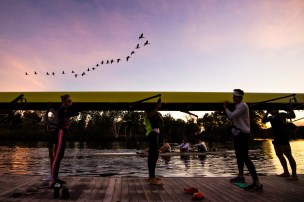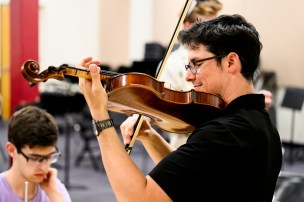Published on
Northeastern grad helps breathe new life into family’s Rhode Island vineyard
Bill Wilson found a creative use for his anthropology degree: making wine. He brought fresh ideas and strategies to his family’s Greenvale Vineyard in Portsmouth, Rhode Island, helping it not only survive but thrive.
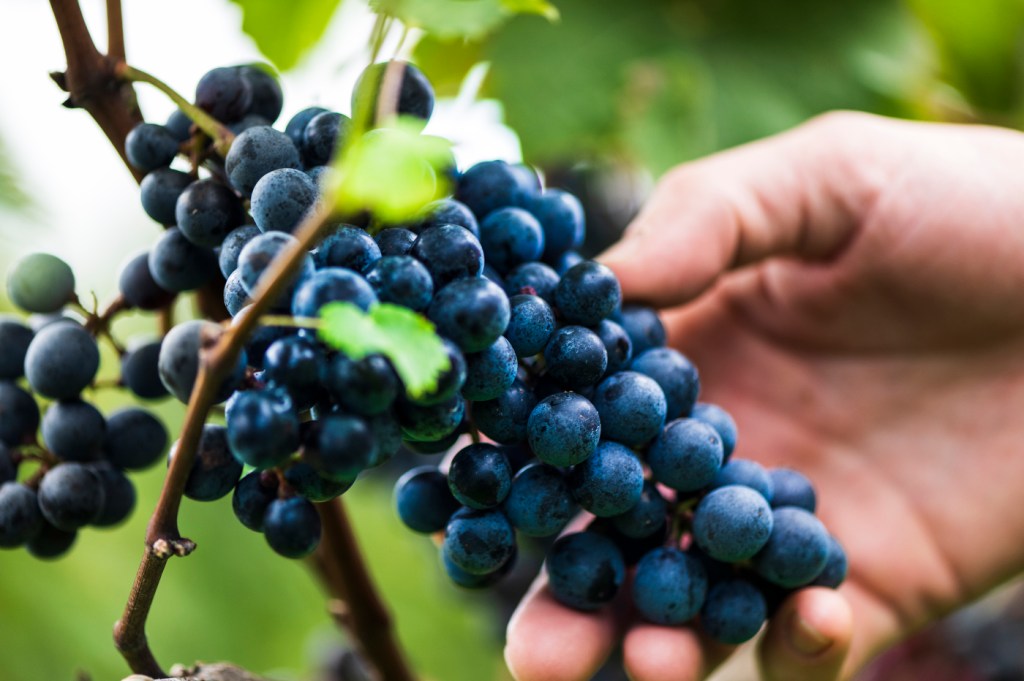
Walking between rows of vines laden with grapes, across the dips and rises of Greenvale Vineyards’ hills, Bill Wilson feels at home. In a way, he is.
The Portsmouth, Rhode Island, vineyard and winery has been in his family for eight generations, since 1863. He grew up running under the feet of adults in the vineyard’s tasting room, a converted 1860s barn and stable, and, later, harvesting grapes and working the property when he wasn’t studying anthropology at Northeastern University.
In all that time, Wilson and the vineyard have grown significantly. Wilson, who graduated from Northeastern in 2015, now co-runs Greenvale with his mother, Nancy Parker Wilson, and serves as the vineyard’s winemaker. He’s helped it through thick and thin. Bringing creative solutions and utilizing his anthropology background in unexpected ways, Wilson has helped the vineyard not just survive but thrive through the COVID-19 pandemic and the ongoing effects of climate change.
His journey is as intertwined with Greenvale as the vines spread across Greenvale’s 73 acres.
“A lot of memories get brought back just by the smell of the grapes themselves and the skins,” Wilson says.
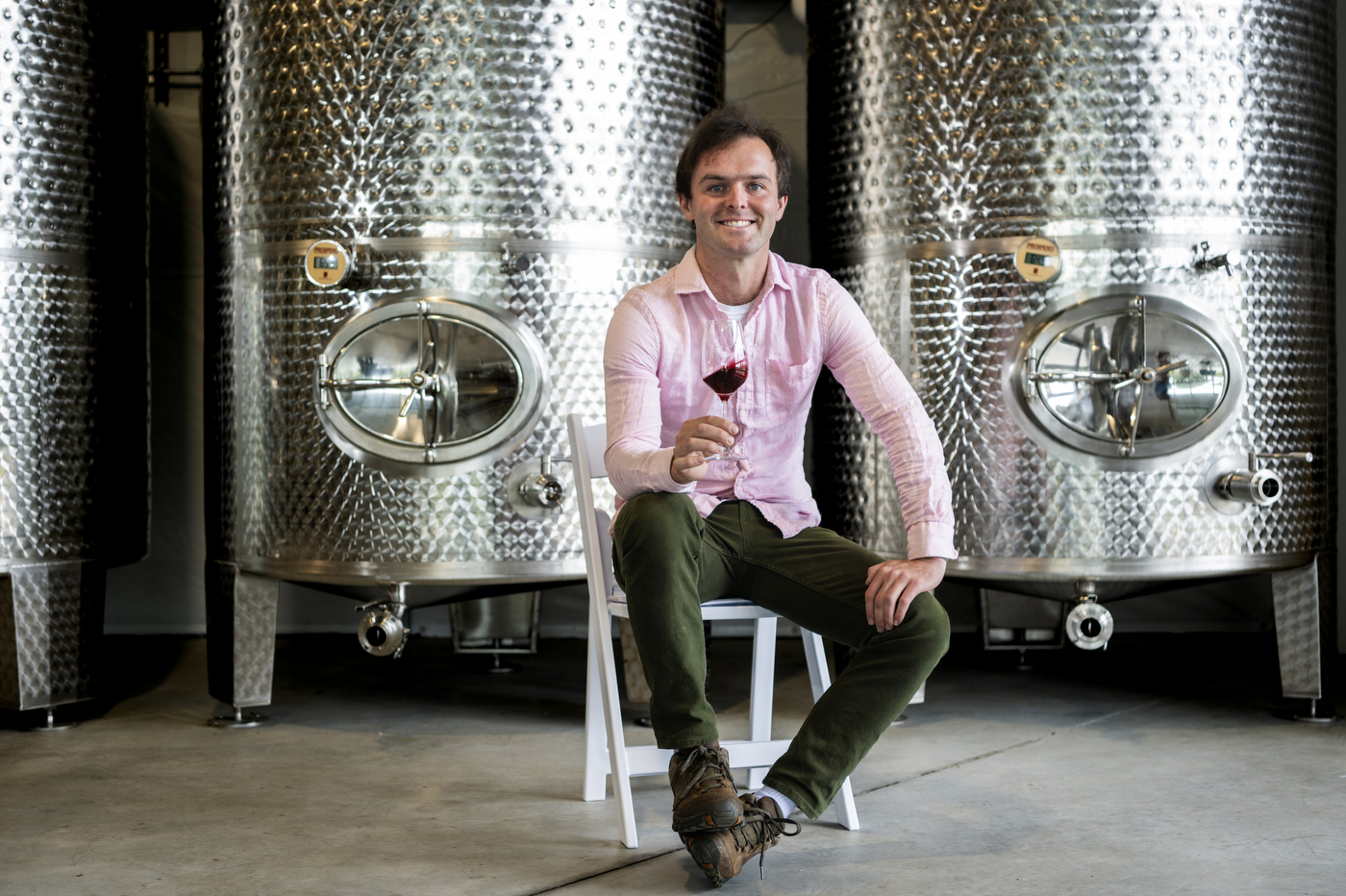
Over the last few years that Wilson has been helping run operations at Greenvale, the vineyard has gone from selling 1,500 cases of wine a year to selling close to 3,500 and opening its own on-site winery. There, Wilson and the team are busy crafting the red wines –– Malbec, Merlot and Cabernet Franc –– as well as whites –– Cayuga Vidal, Chardonnay Albariño and Pinot Grigio –– that Greenvale is known for.
But Greenvale hasn’t always been a vineyard. Wilson’s distant ancestor originally purchased the land in 1863 as a way to move out of the spice trade and connect to nature, having become wrapped up in the Emersonian environmentalist movement of the era.
Over time the property wound its way through the family until it got to Wilson’s maternal grandparents, Cortlandt and Nancy Parker. A retired journalist who had started several daily newspapers in the tristate area during the 1960s and 1970s and avid fan of Bordeaux wines, Cortlandt decided to start planting grape vines in 1982.
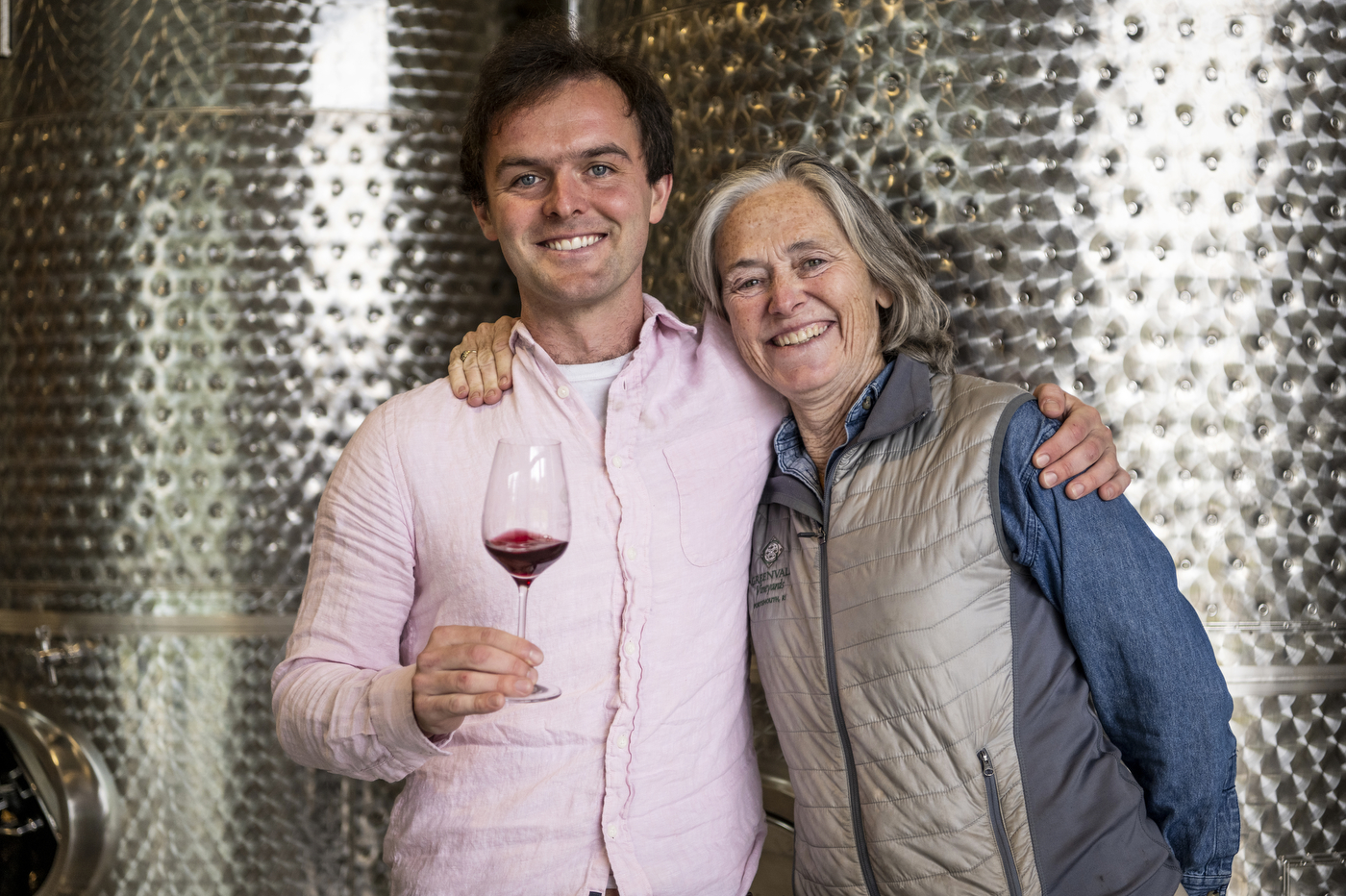
When Wilson’s grandfather first started the vineyard, he was just selling grapes to the other wineries in the area: Newport Vineyards and Carolyn’s Sakonnet Vineyard. Wilson says the real mission was to preserve the land.
“In the ’80s, families didn’t really want to farm anymore, and so it was very common for a 60-acre parcel to turn into quarter-acre house lots,” Wilson says. “He just didn’t want that to happen here, so he thought it would be very meaningful to start planting grapes.”
It wasn’t until the ’90s, when Wilson’s mother started to become more active in the vineyard’s operations, that the family realized it made more financial sense to make wine and sell it directly to consumers. Wilson’s mother is currently the president of Greenvale, which she officially established in 1992 with her parents. Wilson’s father, Bill Sr., an architect, helps with managing the property and running vineyard tours.
The history of Greenvale is long and winding, but it’s always been about family, a love for the land and a passion for doing what you love. And Wilson’s own story is no different.
When they were younger, he and his four siblings would spend weekdays going to school in Boston’s South End and weekends at the vineyard. When he was older, Wilson would spend a few days every week during the summer helping out on the property.
After graduating from high school, Wilson took a gap year to learn more about himself, what he wanted to do and what he could do. During that time, he worked full time at Greenvale, putting posts in for the trellis system, mowing grass and building fences. Still, he didn’t plan on becoming a permanent part of the family business.
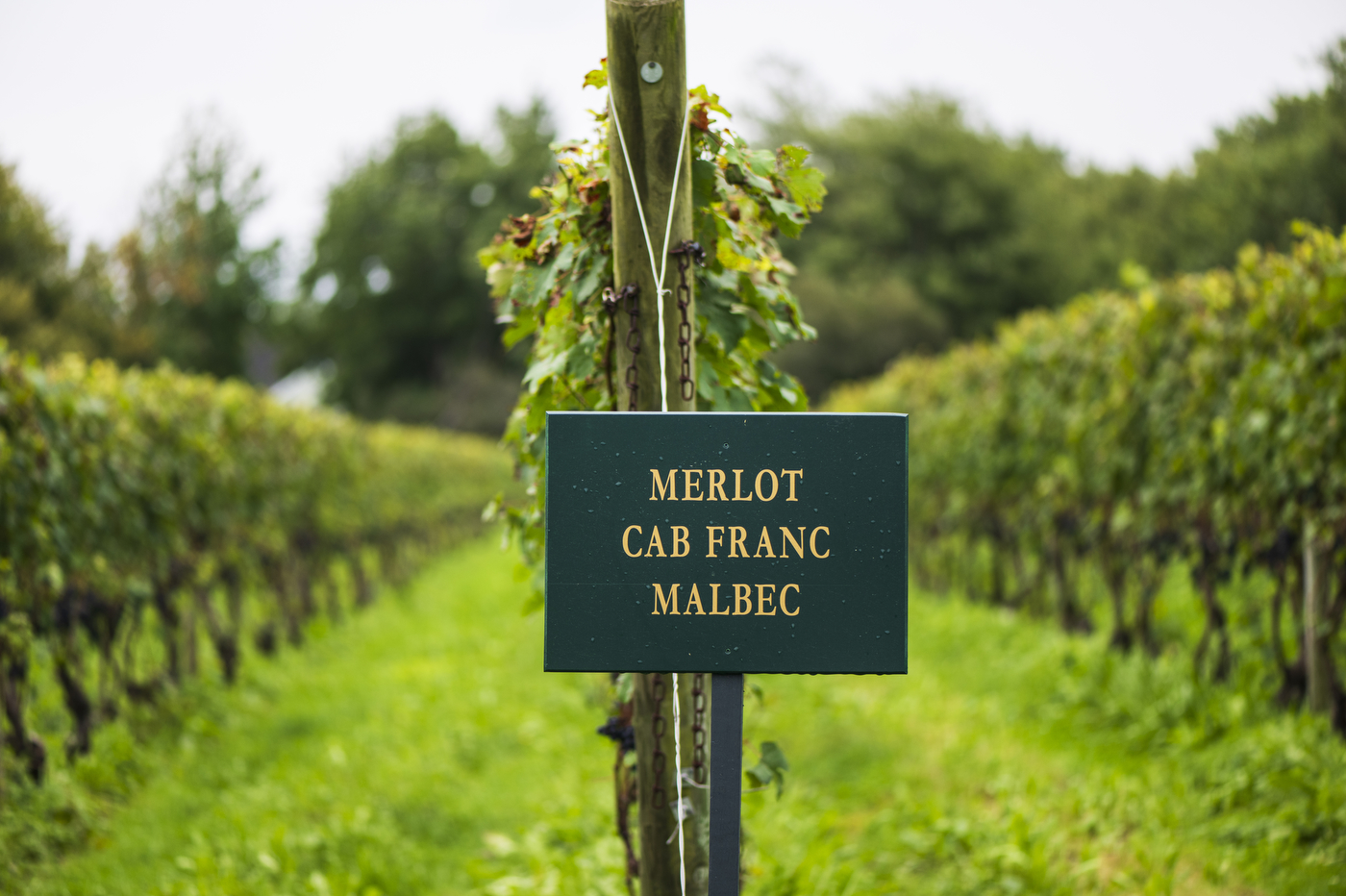
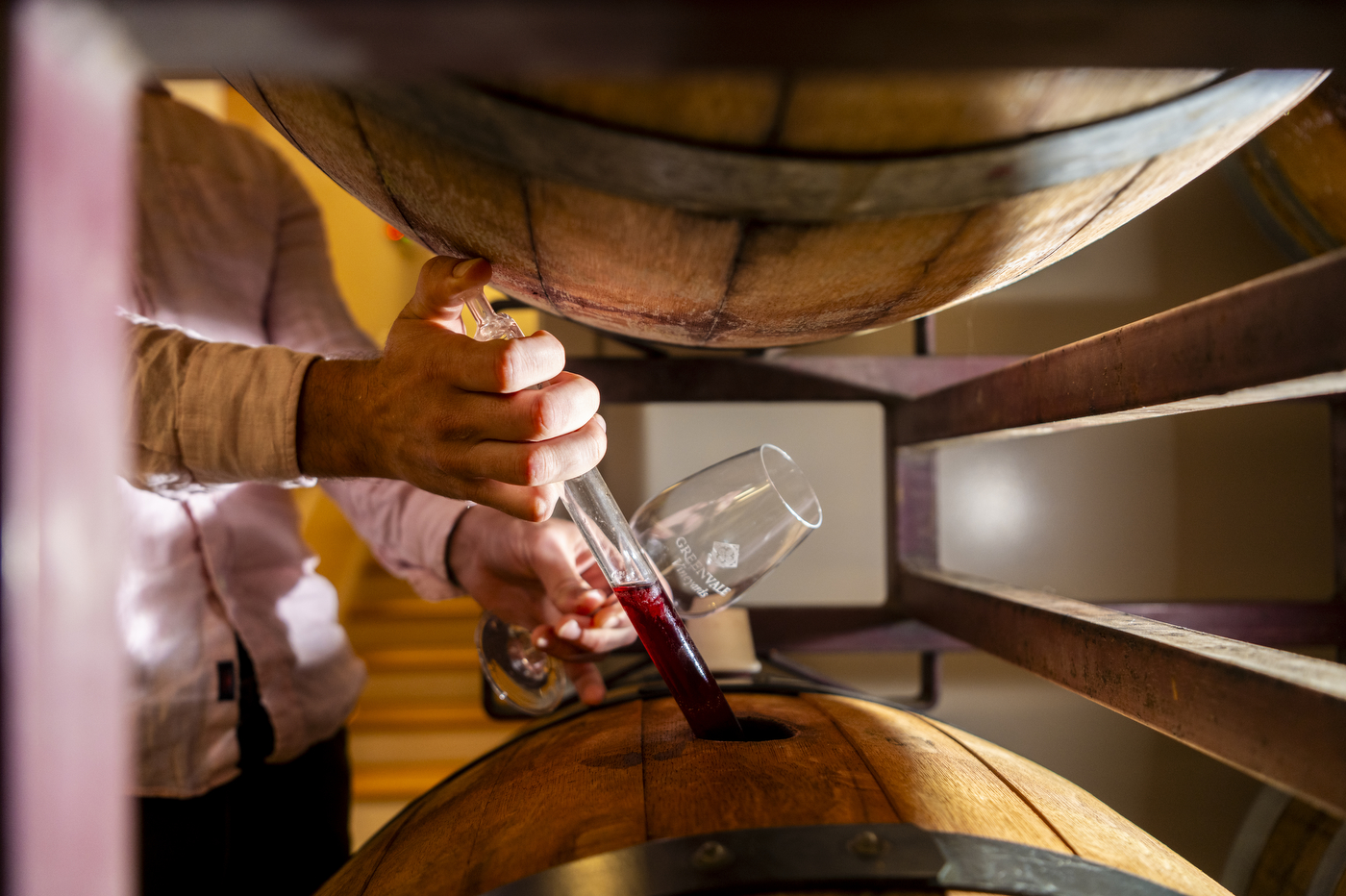
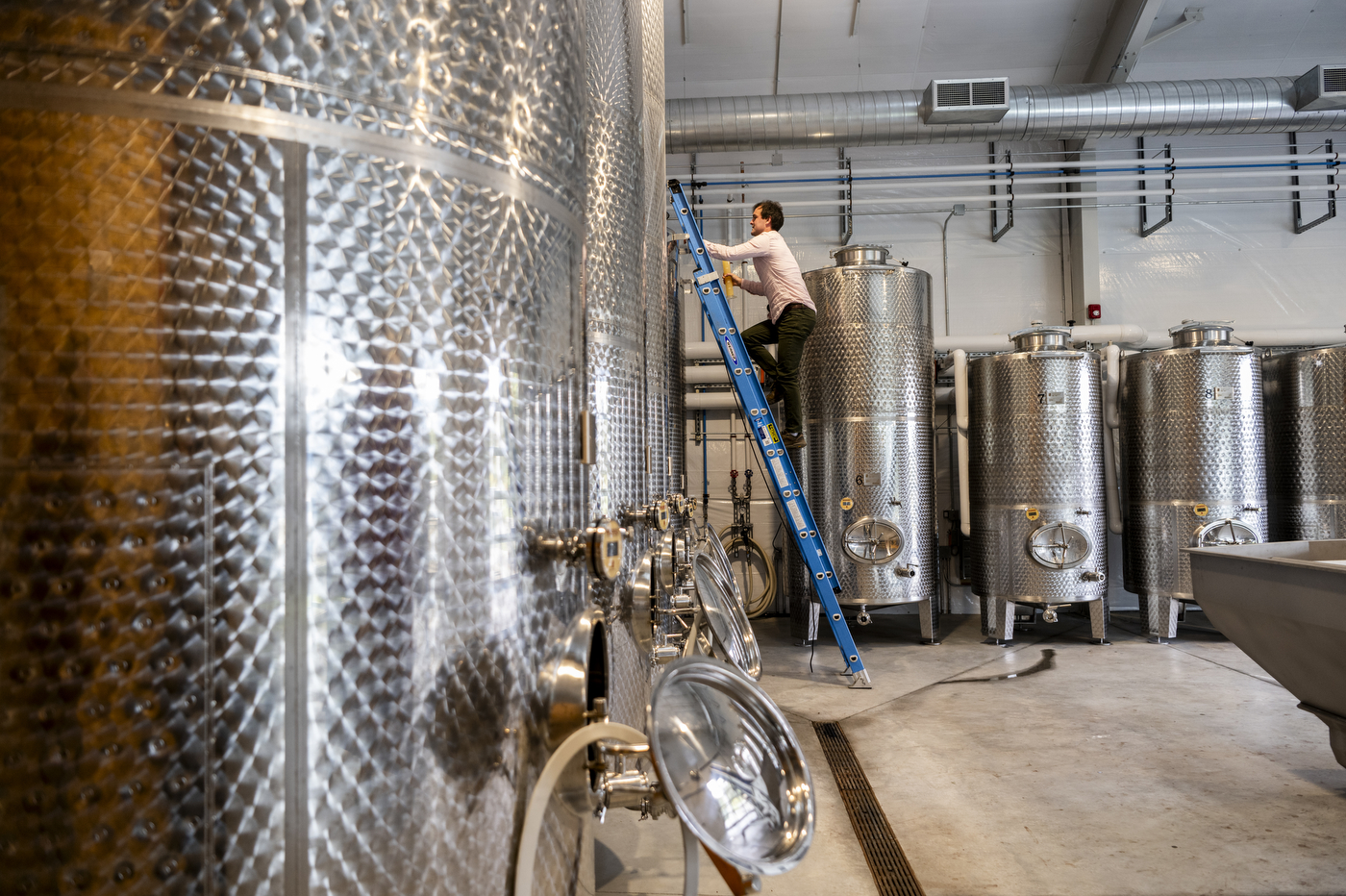
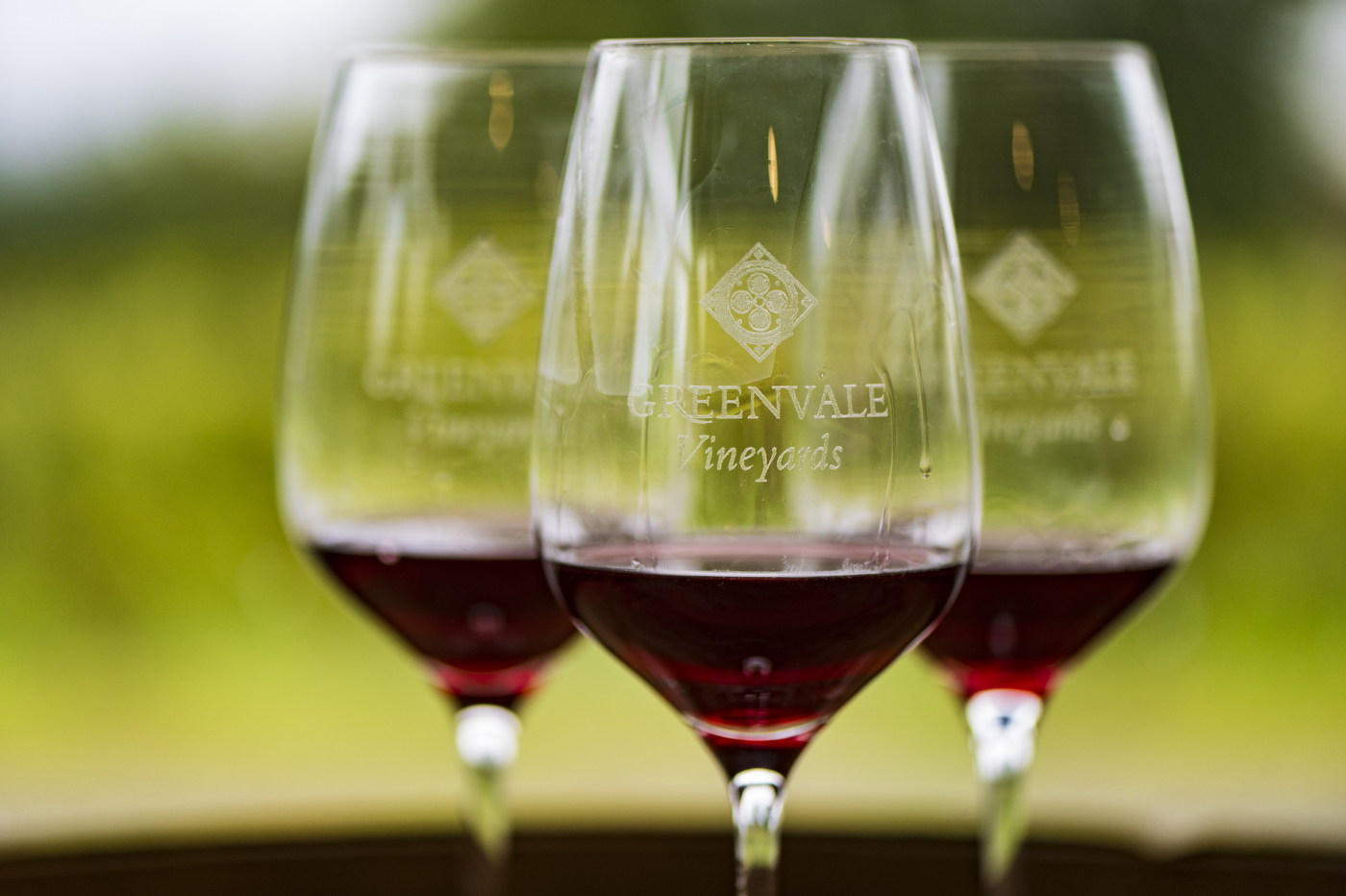
He went off to study philosophy at University of Colorado Boulder but ended up missing the East Coast so much he left after a year. He took another gap year, during which he managed a restaurant in Boston’s North End, before arriving at Northeastern in 2012 with more experience than most first-year students.
At Northeastern, Wilson quickly found a love for anthropology. It combined his passion for the liberal arts with elements of psychology and economics in a way that made sense for a student whose boundless curiosity saw him taking courses ranging from physics to sustainable development.
When Wilson graduated in 2015, he could already feel the vineyard pulling him back in. None of his other siblings had expressed any interest in the family business, but Wilson saw an opportunity.
“I could sense my final semester when the winemaker wanted to start training someone else, the taster and manager was starting to get ready to move on, I just felt like we had more to do,” Wilson says. “There was a lot more this place could become.”
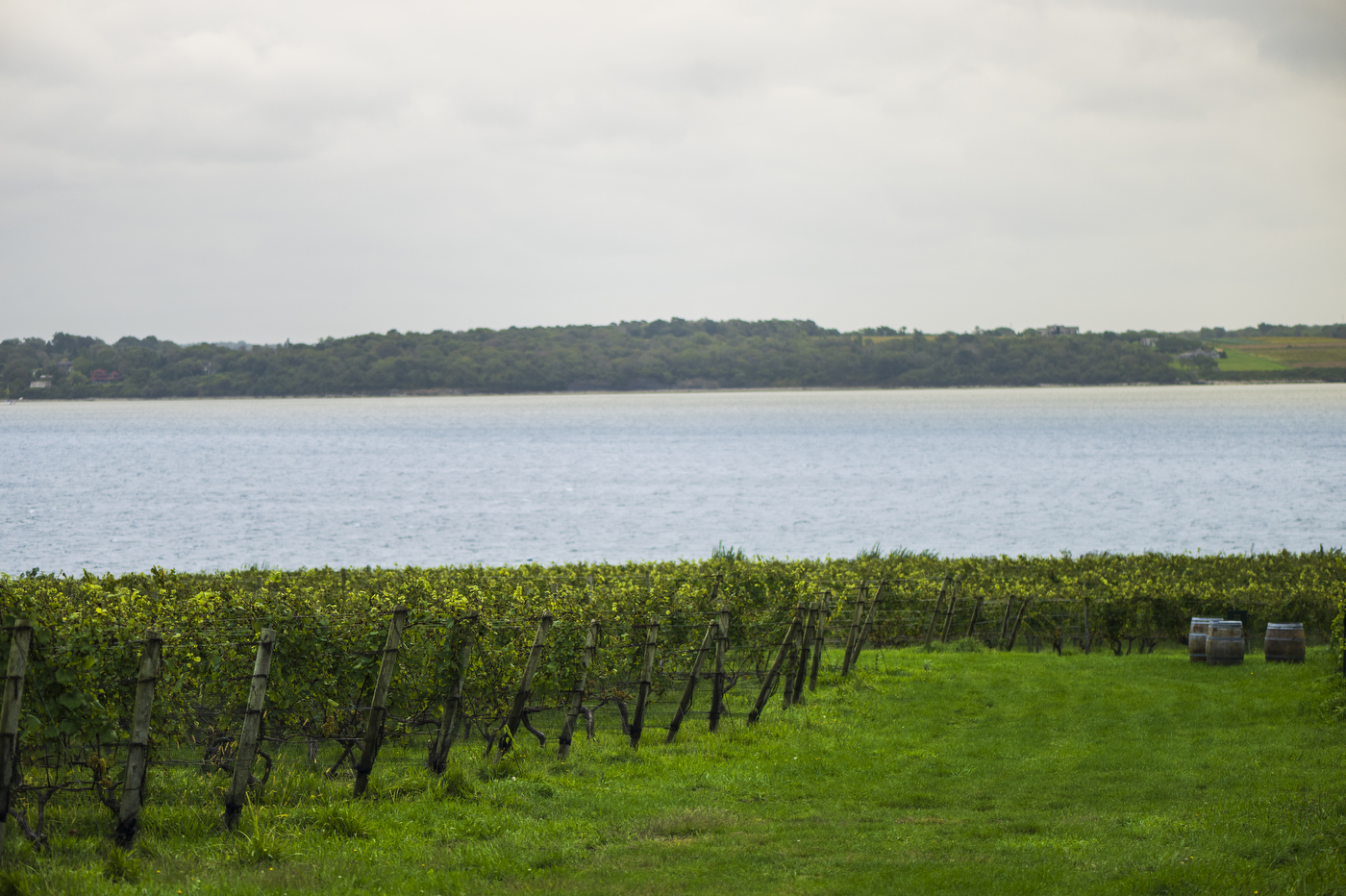
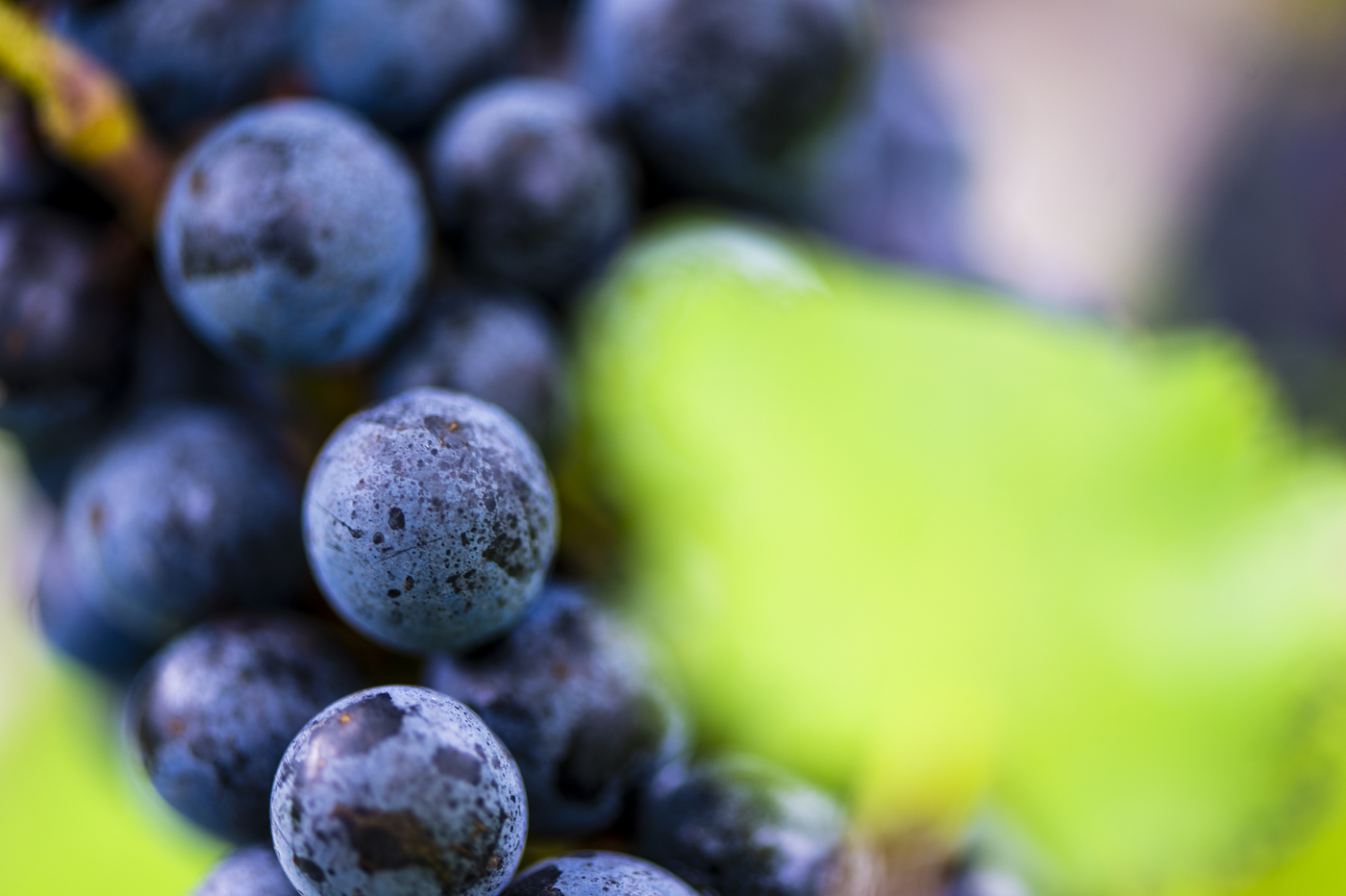
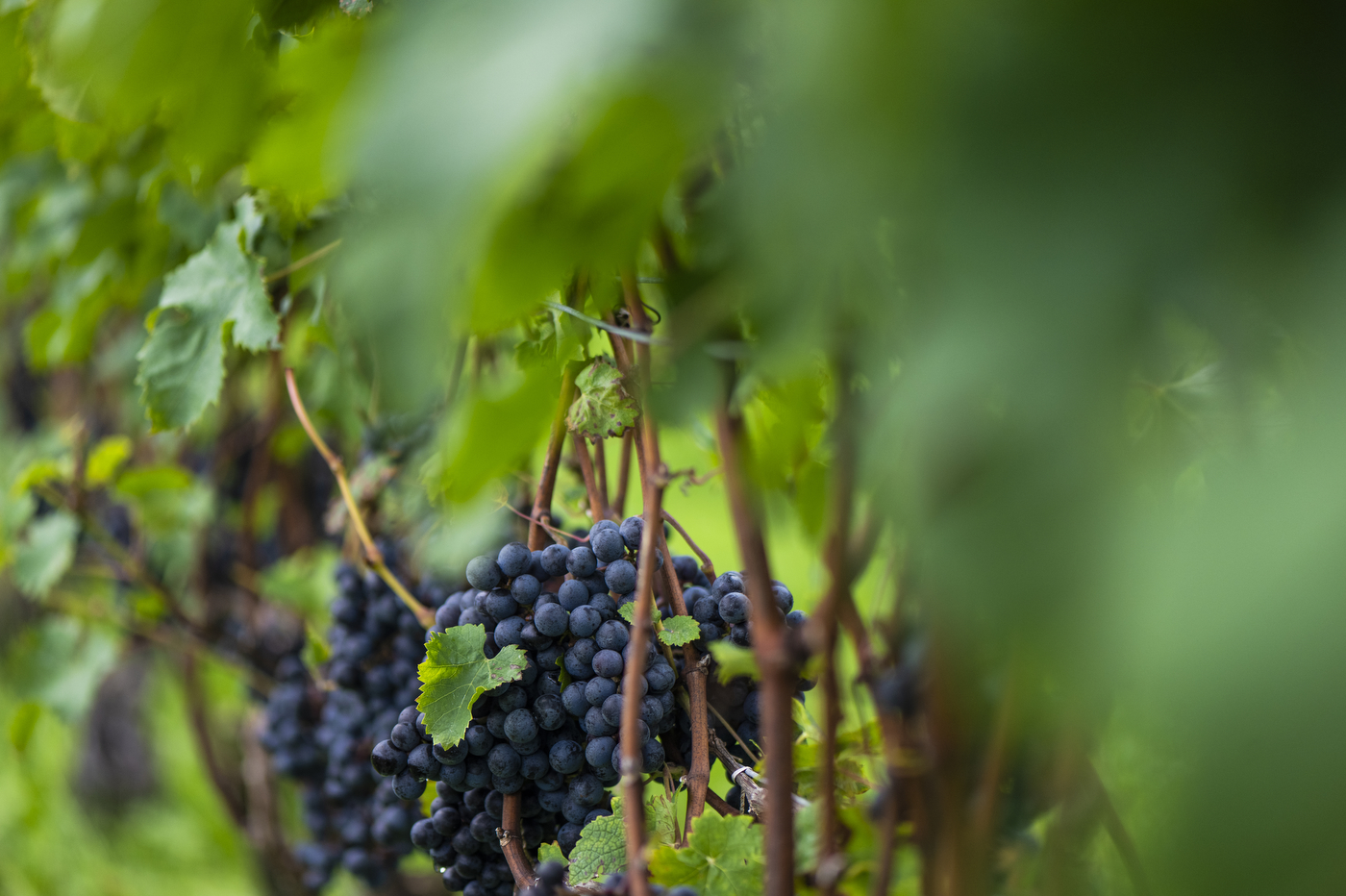
The summer after he graduated Wilson started attending agriculture conferences on weekends and started to learn the nitty gritty of soil science and plant science. He also became an apprentice with Greenvale’s winemaker at the time, Richard Carmichael, who had to take a step back from the day-to-day physical work due to a cancer diagnosis.
For three years, from 2015 to 2018, he learned as much as he could about the science behind winemaking both in the classroom at local community colleges and at the vineyard. Although he had received his degree, Wilson wasn’t –– and still isn’t –– ready to stop learning.
Wilson quickly proved he was willing to try new techniques and the kinds of wine Greenvale had never made to push Greenvale forward.
“Richard was always against trying new things out, and I was the exact opposite,” he says. “He never liked making sparklings, and with my first vintage in 2019, I made two sparklings.”
Surprisingly, the work he had done at Northeastern –– learning about the cultural histories of objects and rituals and how to form connections within a community, how to situate those connections within larger systems –– was a natural fit for winemaking.
“Wine’s been made for 8,000 years, and all sorts of meanings were attached to wine, and it was used for so many rituals or celebrations or festivals,” Wilson says. “[The job] is all about relationships and bringing people together, and that was what anthropology allowed me to really dial in on: paying attention to that and seeing that there’s clearly a wine culture here.”
It’s also helped him look at the market and analyze customer behavior to see which wines are working, which aren’t and why people like what they like.
All of Wilson’s creativity was put to the test when the COVID-19 pandemic hit the U.S. in March 2020. Greenvale wasn’t able to provide indoor tastings, which accounted for 40% of its income, and people stopped coming altogether.
Wilson says the first couple of months were brutal, but his family and the rest of the team found ways to bring Greenvale out of what could have been a fatal nosedive.
They invested fully in marketing and social media to reach people who now had to spend most of their time at home. More vitally, they started taking full advantage of their massive outdoor space, the only place most people felt safe during the early days of the pandemic. Wilson and the team came up with the idea of offering outdoor flight boards, something other wineries and breweries had started doing, with their own flavor: the boards were made out of refashioned wine barrels. They also kickstarted a subscription-based wine club.
By August 2020, Wilson says Greenvale was doing four times the amount of business it was doing at the same time in 2019.
“It took us a long time, but we did pretty well during the pandemic,” Wilson says.
At the same time, plans were put in place to build Greenvale’s own on-site winery facility, complete with tanks, wine presses and storerooms. Previously, Wilson had been using facilities at Newport Vineyards to press grapes and make wine.
Now, it’s the business, not just the grapevines, that are growing at Greenvale. This year, Wilson is buying grapes from other vineyards for the first time to meet the demand.
It’s not entirely smooth sailing though. Climate change has become a major factor for farms, orchards and vineyards across the country, Wilson says. That includes New England, where “it’s thought that these cooler, more humid areas … will benefit from climate change.”
“What is really going on is there is more erratic weather; that’s going to be a big part of it too,” Wilson says.
Warmer temperatures mean Greenvale can now pick grapes into mid-November, not mid-October, but there are also sudden changes in temperature that can wreak havoc on growth. A cold snap that hit New England in February killed buds on the grapevines that would have been the foundation for new growth this season. One night of sudden, intense cold cost Greenvale 40% of its yield for the year.
“These sudden cold dips –– we might see those more,” Wilson says. “Two years ago we got eight inches of rain overnight, and for one of our varietals, the canopy just got totally rained off. It is getting warmer; it’s not necessarily making things easier.”
According to Wilson, 80% of making wine happens in the vineyard, not the winery. Even under normal weather conditions, there’s a lot that can go wrong. You can pick the grapes too early or too late, the humidity can make fungus grow rampant and birds can put a dent in your yield.
It’s all part of what makes winemaking so challenging and, for Wilson, so satisfying.
“You’re taking this living thing that nature built, and you’re carrying it forward into the winery,” Wilson says. “From there on it has more and more life.”
Greenvale has had its fair share of challenges, but there’s no place Wilson would rather be. It’s home.
Cody Mello-Klein is a Northeastern Global News reporter. Email him at c.mello-klein@northeastern.edu. Follow him on X/Twitter @Proelectioneer.



